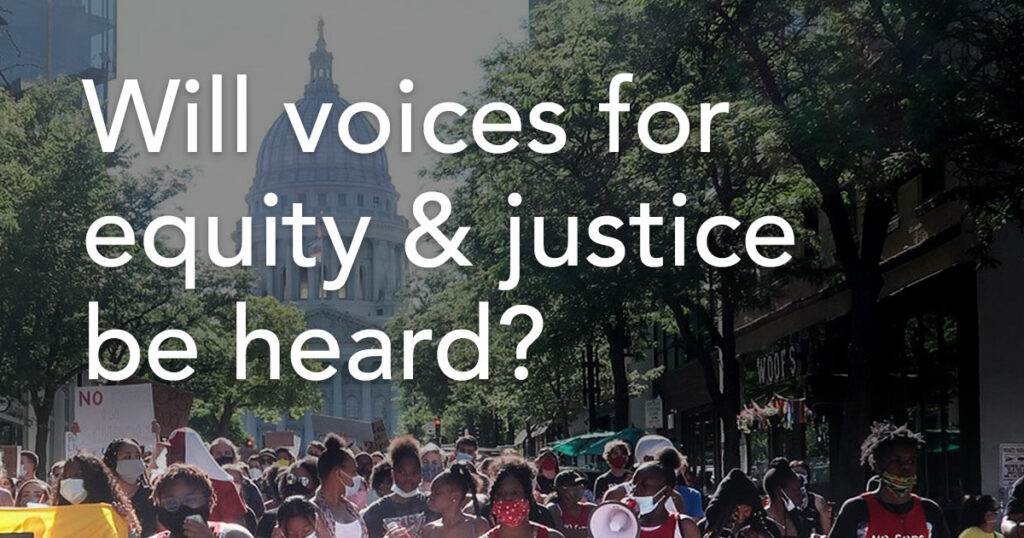Blog
Billions are at stake. Community voice is critical

The next few months are pivotal in determining whether the billions of dollars in the federal recovery funds move us toward education justice, or increase race, gender, and class inequities.
The future of millions of children is at stake. If parents, students, and educators don’t organize to determine where these billions go, someone else will. It’s up to communities to raise their voices; it’s up to philanthropy to speak out, to use their influence as well as their grant dollars—their cash and connections—to support grassroots organizing in this historic moment.
States must submit plans by June 7th to the federal government on how they’ll spend the $123 billion earmarked for education in American Rescue Plan (ARP), and each school district must submit their own plans to their state. States and districts are required to show robust stakeholder engagement from students, educators and community groups in those plans.
Boston model: ensure meaningful community voice at the table
Boston Public Schools announced a new commission to determine how to invest the nearly $400 million the district is expected to receive over the next three years. The commission features stakeholders from every sector of the city. Schott President Dr. John H. Jackson, who is a commission member, said, “We applaud the superintendent for creating a commission made up of diverse partners from the community including Boston Student Advisory Committee, Boston Education Justice Alliance and the Lawyers Committee — as well as educators, school leaders and philanthropic partners. We strongly encourage other cities to do the same and urge our philanthropic partners to engage in the process.”
Not all districts are yet taking Boston’s approach. As any observer of education policy will tell you, it’s one thing for a law to mandate community input, and it’s another thing for that input to be meaningful, substantive, and powerful enough to make a serious impact. Given the Rescue Plan’s short timeline, it will be tempting for some policymakers to ignore voices for equity and justice. With the transformative potential of these funds on the line, that’s something we must not allow.
Support organizers in elevating input for allocation decisions
Last week Schott convened our Opportunity to Learn Network, including policy experts and veteran education justice organizers, to provide an overview of the Rescue Plan and a detailed roadmap for community members to have a say in allocation of the funds.
“Let’s Get These Billions” brought together dozens of grantee partners in a strategy session to learn from:
- FutureEd Editorial Director Phyllis W. Jordan, who dove into the details of public education money available in the ARP
- Alliance for Quality Education Executive Director Jasmine Gripper and Advocacy & NYC Director Zakiyah Ansari, who offered concrete lessons learned from the fight for fair funding in New York State and the actions AQE is taking today to organize communities large and small
- Californians for Justice Strategy Director Saa’un P. Bell, who showed how organizing the community at state and local levels has dramatically shifted education funding priorities in California by engaging allies and decision-makers to rebuild and reimagine schools that center racial justice
Much of the online convening took place in breakout rooms where participants worked through the nuts and bolts of next steps, but we’ve made public the opening presentations by our speakers:
These kinds of convenings and working sessions can and should be replicated in every state and district. Philanthropy should use its resources to support community groups while insisting that policymakers prioritize the input of grassroots voices.


